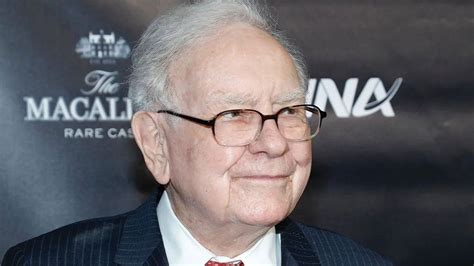
Warren Buffett’s Berkshire Hathaway significantly reduced its holdings in several U.S. stocks during the first quarter, including a complete exit from Paramount Global and a major trimming of its stake in Apple, despite Buffett’s long-held advocacy for investing in American companies. The moves, revealed in Berkshire’s latest 13F filing with the Securities and Exchange Commission (SEC), signal a potential shift in investment strategy amid evolving market dynamics.
Berkshire Hathaway sold off all of its 63.3 million shares of Paramount Global, valued at approximately $1.08 billion, marking a complete departure from the media conglomerate. The move comes after challenges faced by Paramount in a rapidly changing media landscape. This exit suggests a loss exceeding half a billion dollars for Berkshire, reflecting the difficulties in the media sector.
Furthermore, the conglomerate reduced its Apple stake by 13%, selling 116 million shares. Despite the substantial reduction, Apple remains Berkshire’s largest holding, valued at $135.4 billion as of the end of the first quarter. The sale of Apple shares generated about $20 billion, which Berkshire is likely holding in cash or short-term Treasury bills. Buffett noted the rationale behind this move during Berkshire’s annual shareholder meeting in Omaha, stating that it was “extremely likely” that Apple would remain Berkshire’s largest equity investment at the end of the year.
Besides Apple and Paramount, Berkshire also reduced its stakes in other companies. The report details that Berkshire Hathaway also further trimmed its position in HP Inc., and Chevron Corp., continuing a trend from previous quarters. However, Berkshire increased its investment in Occidental Petroleum, reaffirming confidence in the energy sector.
Berkshire’s cash reserves have climbed to a record $189 billion, nearing the $200 billion level that Buffett has indicated would trigger a major acquisition. Buffett has expressed difficulty in finding attractive investment opportunities that meet Berkshire’s criteria for size and value.
During the annual shareholder meeting, Buffett addressed the implications of artificial intelligence (AI), suggesting it could be potentially “enormously disruptive” and comparing it to the development of the atomic bomb. Buffett acknowledged both the immense potential and the possible negative consequences of AI.
The decision to sell Paramount Global shares reflects ongoing concerns about the evolving media landscape and the challenges traditional media companies face in the streaming era. The significant reduction in Apple shares underscores the need for portfolio rebalancing and capital preservation, especially as Berkshire seeks larger acquisition opportunities.
Detailed Analysis of Berkshire Hathaway’s Q1 2024 Investment Moves:
Warren Buffett’s Berkshire Hathaway’s first quarter investment moves for 2024 send ripples across Wall Street, prompting investors and analysts to reassess their strategies. Berkshire’s 13F filing with the SEC offers a comprehensive overview of the changes in holdings, revealing not only what was sold but also providing insights into Buffett’s broader strategic outlook.
Paramount Global Exit: The complete liquidation of Paramount Global shares represents a notable retreat from the media sector. Berkshire Hathaway initially invested in Paramount Global, then known as ViacomCBS, in 2022. At that time, the investment was seen as a bet on the company’s streaming strategy and valuable content library. However, Paramount Global has since faced headwinds, including declining linear TV viewership, challenges in growing its streaming subscriber base, and significant debt. The stock price has suffered, leading to substantial losses for Berkshire. Buffett openly admitted the loss on the Paramount investment, characterizing it as “my decision, and we’ve lost some money.”
The media industry is undergoing rapid transformation, with consumers increasingly shifting to streaming platforms. Traditional media companies like Paramount Global are struggling to compete with tech giants such as Netflix and Amazon, which have vast resources and global reach. Paramount’s streaming service, Paramount+, has gained subscribers, but it has yet to achieve profitability. The company has also explored strategic options, including potential mergers or acquisitions, to address its challenges.
The decision to exit Paramount Global suggests that Buffett has lost confidence in the company’s ability to navigate these challenges successfully. It also reflects a broader trend of investors becoming more cautious about the media sector, given the uncertainty surrounding its future.
Apple Stake Reduction: The reduction in Apple shares is perhaps the most closely watched move in Berkshire’s latest filing. Apple has been Berkshire’s largest holding for several years, and it has been a significant driver of the conglomerate’s investment returns. Buffett has repeatedly praised Apple’s strong brand, loyal customer base, and ability to generate consistent profits. He has also emphasized that Apple is more than just a technology company; it is a consumer products company with a powerful ecosystem.
Despite Buffett’s long-standing admiration for Apple, the decision to reduce the stake suggests a strategic shift. The sale of 116 million shares generated approximately $20 billion in proceeds, which Berkshire is likely holding in cash or short-term Treasury bills. This move increases Berkshire’s already massive cash pile, providing greater flexibility for future investments or acquisitions.
Several factors may have influenced the decision to trim the Apple stake. First, Apple’s stock price has risen sharply in recent years, making it a larger portion of Berkshire’s portfolio. Reducing the stake may be a way to rebalance the portfolio and reduce concentration risk. Second, Buffett may believe that Apple’s growth prospects are slowing, given its massive size and the increasing competition in the smartphone market. Third, the sale may be driven by tax considerations. By selling some of its Apple shares, Berkshire may be able to realize capital gains and reduce its tax burden.
During the shareholder meeting, Buffett clarified that the sale of Apple stock was primarily driven by tax considerations related to the increased profitability of Berkshire’s other businesses. He emphasized that Apple would likely remain Berkshire’s largest equity investment. “It is extremely likely that Apple will be Berkshire’s largest equity holding at the end of this year,” Buffett stated.
Other Portfolio Adjustments: In addition to Paramount Global and Apple, Berkshire also made adjustments to its holdings in other companies. The company further reduced its position in HP Inc., continuing a trend from previous quarters. Berkshire initially invested in HP in 2022, but it has since trimmed its stake as the company has faced challenges in the PC market.
Berkshire also reduced its stake in Chevron Corp., reflecting a cautious outlook on the energy sector. The company has been gradually reducing its exposure to Chevron over the past year, as concerns about climate change and the transition to renewable energy have increased.
On the other hand, Berkshire increased its investment in Occidental Petroleum, reaffirming its confidence in the energy sector. Berkshire has been steadily building its stake in Occidental over the past few years, and it now owns a significant portion of the company. Buffett has praised Occidental’s management team and its strategy of focusing on carbon capture and enhanced oil recovery.
Cash Position and Acquisition Strategy: Berkshire’s cash reserves have climbed to a record $189 billion, nearing the $200 billion level that Buffett has indicated would trigger a major acquisition. Buffett has been searching for a large, attractive acquisition for several years, but he has struggled to find opportunities that meet Berkshire’s criteria for size, value, and long-term growth potential.
Buffett has expressed frustration with the high valuations in the current market, making it difficult to find companies that are trading at reasonable prices. He has also emphasized that Berkshire is not willing to overpay for an acquisition, even if it means missing out on opportunities.
The growing cash pile gives Berkshire significant firepower to make a major acquisition when the right opportunity arises. Potential targets could include companies in a variety of industries, such as insurance, energy, and consumer products. Buffett has also expressed interest in acquiring more railroad companies, adding to Berkshire’s existing ownership of BNSF Railway.
Buffett on Artificial Intelligence (AI): During the annual shareholder meeting, Buffett addressed the implications of artificial intelligence (AI), suggesting it could be potentially “enormously disruptive” and comparing it to the development of the atomic bomb. Buffett acknowledged both the immense potential and the possible negative consequences of AI.
“When something can do all kinds of things, I get a little bit worried,” Buffett said, highlighting the uncertainties surrounding AI’s future impact. While acknowledging its potential benefits, Buffett also cautioned about the potential for misuse and unintended consequences.
Buffett’s remarks on AI underscore the broader concerns about the technology’s rapid development and its potential to disrupt various industries. Investors are closely monitoring the impact of AI on companies’ business models and profitability.
Market Reaction and Investor Sentiment: Berkshire’s Q1 2024 investment moves have sparked considerable debate among investors and analysts. Some see the reduction in Apple shares as a sign that Buffett is becoming more cautious about the technology sector, while others view it as a prudent move to rebalance the portfolio.
The complete exit from Paramount Global has raised concerns about the future of the media industry and the challenges faced by traditional media companies. Investors are closely watching how Paramount Global will navigate the evolving media landscape and whether it will be able to compete effectively with streaming giants.
Overall, Berkshire’s investment moves reflect a cautious and disciplined approach to capital allocation. Buffett remains focused on finding undervalued companies with strong fundamentals and long-term growth potential. His willingness to hold a large cash position demonstrates his commitment to preserving capital and waiting for the right opportunities to emerge.
Looking Ahead: Berkshire Hathaway’s investment strategy remains a subject of intense scrutiny, given Buffett’s legendary status and the conglomerate’s massive size. The company’s Q1 2024 moves highlight the importance of portfolio diversification, risk management, and a long-term investment horizon.
As Berkshire navigates the evolving market landscape, investors will be closely watching its future investment decisions and its ability to generate attractive returns. The company’s growing cash pile provides significant flexibility to pursue strategic acquisitions and capitalize on market opportunities.
The media industry is likely to remain a challenging environment for traditional media companies, as they grapple with declining linear TV viewership and increasing competition from streaming platforms. Apple, despite its strong brand and loyal customer base, faces increasing competition in the smartphone market and must continue to innovate to maintain its growth trajectory.
Berkshire Hathaway’s Q1 2024 investment moves serve as a reminder of the importance of adapting to changing market conditions and maintaining a disciplined approach to capital allocation. Buffett’s focus on value investing and long-term growth remains a guiding principle for investors around the world.
FAQ: Berkshire Hathaway’s Q1 2024 Investment Decisions
Q1: Why did Berkshire Hathaway sell all of its Paramount Global shares?
A1: Berkshire Hathaway exited Paramount Global due to concerns about the evolving media landscape and the challenges faced by traditional media companies in the streaming era. Paramount Global has struggled with declining linear TV viewership, growing its streaming subscriber base profitably, and a significant debt load. As Warren Buffet stated, he admitted the loss on the Paramount investment, characterizing it as “my decision, and we’ve lost some money.”
Q2: Why did Berkshire Hathaway reduce its stake in Apple, despite its strong performance?
A2: Berkshire Hathaway reduced its Apple stake by 13% to rebalance its portfolio and reduce concentration risk, as Apple had become a significant portion of Berkshire’s holdings due to its rising stock price. Tax considerations related to the increased profitability of Berkshire’s other businesses also influenced the decision. The sale generated approximately $20 billion in proceeds. While reducing the stake, Buffett emphasized that “It is extremely likely that Apple will be Berkshire’s largest equity holding at the end of this year.”
Q3: What does Berkshire Hathaway plan to do with its record-high cash reserves of $189 billion?
A3: Berkshire Hathaway intends to use its cash reserves for a major acquisition when an attractive opportunity arises. Buffett has been searching for a large, undervalued company with strong fundamentals and long-term growth potential but has found it difficult to find suitable targets in the current market with high valuations.
Q4: What are Warren Buffett’s thoughts on artificial intelligence (AI)?
A4: Warren Buffett acknowledges that AI is potentially “enormously disruptive” and has compared it to the development of the atomic bomb. He recognizes both the immense potential and the possible negative consequences of AI, expressing concerns about its potential for misuse and unintended consequences. “When something can do all kinds of things, I get a little bit worried,” Buffett said.
Q5: What are the implications of Berkshire Hathaway’s investment moves for other investors?
A5: Berkshire Hathaway’s investment moves highlight the importance of portfolio diversification, risk management, and a long-term investment horizon. The decisions reflect a cautious and disciplined approach to capital allocation, emphasizing the need to adapt to changing market conditions and maintain a focus on value investing and long-term growth. The exit from Paramount raises questions about the future of traditional media, while the Apple reduction signals a need for portfolio rebalancing.
Impact on Paramount Global:
The complete exit of Berkshire Hathaway from Paramount Global is a significant blow to the media company, especially considering Buffett’s reputation often lends credibility and stability to investments. The immediate impact is a likely further decrease in investor confidence, potentially leading to a decline in the company’s stock price. The sell-off could also prompt other institutional investors to re-evaluate their positions in Paramount Global, accelerating the downward pressure.
Operationally, the exit could complicate Paramount’s efforts to secure strategic partnerships or potential merger opportunities. With a major investor like Berkshire Hathaway losing confidence, potential partners might view Paramount as a riskier proposition. The company is already navigating a challenging landscape with increasing competition from streaming giants and the need to invest heavily in content creation.
The departure also raises questions about Paramount’s long-term viability as an independent entity. The company may need to accelerate its efforts to streamline operations, cut costs, and find new revenue streams to reassure investors and stabilize its financial position. Alternatively, it might become an acquisition target for a larger media conglomerate seeking to expand its content library and streaming platform.
Broader Implications for the Media Industry:
Berkshire Hathaway’s exit from Paramount Global sends a signal of caution to the broader media industry, particularly for companies heavily reliant on traditional linear TV and struggling to transition to streaming. The industry faces numerous challenges, including cord-cutting, increasing content costs, and intense competition for subscribers.
Traditional media companies are under pressure to adapt their business models and invest heavily in streaming services to compete with the likes of Netflix, Disney+, and Amazon Prime Video. However, many of these companies are struggling to achieve profitability in their streaming ventures, as subscriber growth slows and content costs continue to rise.
The exit could lead to a reassessment of valuations for other media companies facing similar challenges. Investors may become more selective in their investments, favoring companies with strong streaming platforms, diversified revenue streams, and a clear path to profitability.
Impact on Apple:
While the reduction in Berkshire Hathaway’s stake in Apple is significant, it is unlikely to have a major long-term impact on the tech giant. Apple remains one of the most valuable companies in the world, with a strong brand, loyal customer base, and a track record of innovation.
However, the sale could lead to some short-term volatility in Apple’s stock price, as investors digest the news. Some may interpret the move as a sign that Buffett is becoming less optimistic about Apple’s growth prospects, while others may see it as a prudent portfolio rebalancing.
Apple faces increasing competition in the smartphone market, particularly from Chinese manufacturers like Huawei and Xiaomi. The company is also under pressure to innovate and develop new products and services to maintain its growth trajectory.
Berkshire’s Acquisition Strategy:
Berkshire Hathaway’s growing cash pile of $189 billion underscores Buffett’s patient and disciplined approach to capital allocation. He is known for waiting for the right opportunities to emerge and is not afraid to hold cash if he cannot find undervalued companies with strong fundamentals and long-term growth potential.
The company’s acquisition strategy focuses on acquiring entire businesses rather than taking minority stakes in publicly traded companies. Buffett prefers to acquire companies with strong management teams, sustainable competitive advantages, and a history of generating consistent profits.
Potential acquisition targets could include companies in a variety of industries, such as insurance, energy, and consumer products. Buffett has also expressed interest in acquiring more railroad companies, adding to Berkshire’s existing ownership of BNSF Railway.
Buffett’s Views on AI (Extended Discussion):
Buffett’s comparison of AI to the atomic bomb highlights the potential for both positive and negative consequences. AI has the potential to revolutionize various industries, improve efficiency, and create new products and services. However, it also poses risks, including job displacement, algorithmic bias, and the potential for misuse.
Buffett’s remarks underscore the need for careful consideration of the ethical and societal implications of AI. Policymakers, businesses, and individuals must work together to ensure that AI is developed and used responsibly.
Investors are closely monitoring the impact of AI on companies’ business models and profitability. Some companies are already benefiting from AI, using it to automate tasks, improve decision-making, and personalize customer experiences. However, other companies may face disruption as AI transforms their industries.
Berkshire Hathaway’s Long-Term Outlook:
Berkshire Hathaway remains one of the most respected and closely watched investment conglomerates in the world. Buffett’s investment philosophy, which emphasizes value investing, long-term growth, and disciplined capital allocation, has generated significant returns for shareholders over the years.
As Buffett approaches his 94th birthday, investors are also focused on the succession plan for Berkshire Hathaway. The company has identified Greg Abel, the vice chairman of Berkshire Hathaway Energy, as Buffett’s successor. Abel has a strong track record of managing complex businesses and is well-respected within the company.
Berkshire Hathaway’s long-term outlook remains positive, as the company continues to generate strong earnings and maintain a solid financial position. The company’s diversified portfolio of businesses provides stability and resilience in a variety of economic conditions. Buffett’s legacy of value investing and disciplined capital allocation will continue to guide Berkshire Hathaway for years to come.
Conclusion:
Warren Buffett’s strategic portfolio adjustments in Q1 2024, particularly the complete exit from Paramount Global and the reduction of the Apple stake, underscore the dynamic nature of investment strategies and the importance of adapting to evolving market conditions. The decisions reflect a combination of factors, including concerns about the media landscape, portfolio rebalancing, and tax considerations. Berkshire Hathaway’s massive cash reserves provide significant flexibility for future acquisitions, while Buffett’s cautious views on AI highlight the need to consider the ethical and societal implications of emerging technologies. As Berkshire Hathaway navigates the complexities of the global economy, its investment decisions will continue to be closely watched by investors and analysts around the world.









